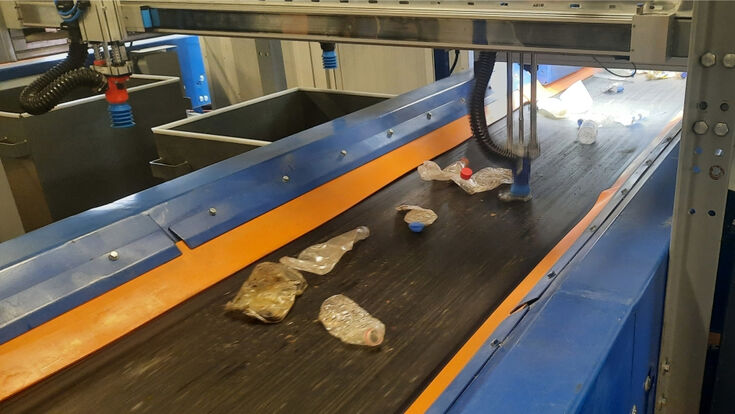Reclaim Waste Melbourne: Proven Techniques for Reliable Liquid Waste Removal
Reclaim Waste Melbourne: Proven Techniques for Reliable Liquid Waste Removal
Blog Article
Fostering Resource Efficiency and Environmental Management Via Fluid Waste Elimination Programs
In the realm of environmental stewardship, the monitoring of liquid waste stands as a critical juncture where source efficiency and ecological protection merge. Liquid waste elimination programs play a critical duty in protecting our ecosystems and ensuring sustainable growth methods. By diligently dealing with the disposal of fluid waste, industries and neighborhoods can not just mitigate prospective hazards however additionally unlock opportunities for recycling and repurposing beneficial resources. As we navigate the intricacies of waste administration in a swiftly developing globe, the synergy in between innovative modern technologies, stringent laws, and forward-thinking techniques becomes significantly vital. Via a lens of proactive interaction and tactical foresight, the landscape of liquid waste administration unveils a tapestry of challenges and possibilities that beckon us to check out the course in the direction of a greener and even more sustainable future.
Relevance of Fluid Waste Removal
The importance of liquid waste elimination depends on its crucial role in preserving environmental health and safeguarding public well-being. Liquid waste, if not correctly handled, can present significant hazards to ecosystems, water resources, and human wellness. Through effective elimination procedures, hazardous compounds such as chemicals, contaminants, and virus are prevented from infecting the atmosphere and causing destructive results.
Proper fluid waste elimination also aids in protecting against the spread of illness and decreasing the possibility for groundwater contamination. By safely taking care of fluid waste, the risk of waterborne ailments and pollution-related health and wellness issues is significantly lessened - Industrial waste water treatment. Furthermore, effective elimination practices add to maintaining the total cleanliness and aesthetics of neighborhoods, thereby boosting the lifestyle for homeowners
Moreover, fluid waste removal plays a crucial function in supporting sustainable advancement and making sure compliance with environmental laws. By sticking to appropriate waste administration procedures, industries and businesses can lower their ecological footprint and demonstrate corporate obligation. Eventually, buying durable fluid waste elimination programs is important for promoting environmental stewardship and promoting a much healthier, much safer future for all.

Advantages of Efficient Disposal
Efficient disposal of fluid waste not just safeguards environmental health and public health yet likewise yields numerous advantages that prolong beyond prompt control steps. Through procedures like reusing and energy recovery, beneficial sources can be drawn out from liquid waste, advertising sustainability and minimizing the stress on raw products. Generally, the benefits of efficient fluid waste disposal are diverse, including environmental protection, source effectiveness, and economic benefits.
Technologies for Waste Treatment
Utilizing innovative modern technologies for waste therapy plays a critical role in ensuring the efficient management and safe disposal of liquid waste. One of the key technologies employed in liquid waste treatment is biological therapy. This technique utilizes microbes to break down raw material in the waste, converting it right into harmless results. An additional typical technology is chemical therapy, where chemicals are contributed to the waste to neutralize unsafe elements or precipitate pollutants for removal. Physical therapy techniques, such as filtration and sedimentation, are likewise widely made use of to separate solids from fluid waste.
In addition, thermal therapy methods such as incineration can be employed for the complete damage of dangerous elements in read what he said fluid waste. Generally, the assimilation of varied therapy modern technologies makes certain comprehensive and environmentally friendly administration of liquid waste.
Role of Laws and Compliance
In the realm of liquid waste management, adherence to regulatory frameworks and compliance criteria is extremely important for guarding ecological health and sustainability. Rules play an important function in regulating the appropriate handling, treatment, and disposal of redirected here liquid waste to avoid damage to environments and human health and wellness. By establishing clear guidelines and criteria, regulative bodies guarantee that businesses and people associated with liquid waste management operate in an eco accountable manner.
Compliance with these laws is not only a legal need however also an ethical commitment to secure the environment for existing and future generations. It involves implementing ideal methods in waste collection, disposal, therapy, and transportation to minimize ecological impact and advertise source effectiveness. Non-compliance can lead to penalties, legal activity, and reputational damages for organizations, highlighting the significance of supporting regulatory standards.

Future Trends in Waste Management

Another key trend in waste monitoring is the adoption of sophisticated information analytics and fabricated intelligence to optimize waste collection paths, enhance arranging procedures, and enhance general functional performance. These innovations allow waste management firms to make data-driven choices, resulting in cost financial savings and environmental advantages.
In addition, there is a growing emphasis on the growth of decentralized waste administration systems, such as onsite treatment centers and mobile waste processing devices. These systems use flexibility and scalability, permitting for a lot more effective waste handling in varied atmospheres.
Conclusion
In verdict, promoting source effectiveness and environmental defense through fluid waste removal programs is crucial for lasting advancement. Efficient disposal approaches, advanced modern technologies for waste treatment, and strict guidelines play essential duties in reducing ecological effect. Looking in advance, constant innovation and renovation in waste management techniques will be essential for attending to the expanding difficulties of fluid waste disposal.
In the world of environmental stewardship, the monitoring of fluid waste stands as a vital time where source performance and ecological security converge (Reclaim Waste Melbourne).Utilizing sophisticated modern technologies for waste therapy plays an important function in making certain the effective administration and risk-free disposal of fluid waste.In the world of fluid waste management, adherence to regulative frameworks and conformity requirements is extremely important for safeguarding environmental health and sustainability.In final thought, promoting source effectiveness and environmental security with liquid waste elimination programs is vital for lasting growth. Looking in advance, continual technology and renovation in waste monitoring techniques will certainly be essential for addressing the growing challenges of fluid waste disposal
Report this page